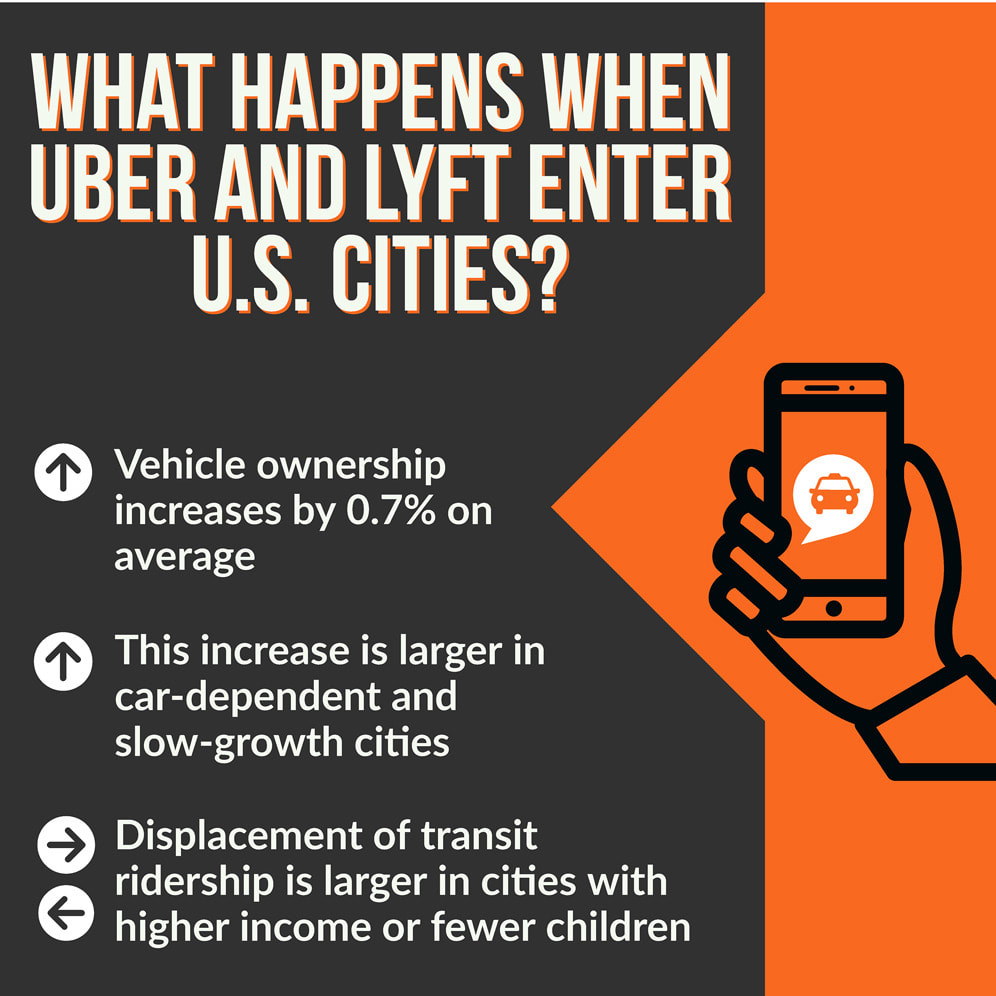Ridesharing companies cause slight increase of car ownership, new study finds
Many people have speculated on the long-term effects that companies like Uber and Lyft have on cities. A new paper aims to provide some scientific insights. Its data shows, among other things, that car ownership increases slightly when a ridesharing company enters a market.

(Image credit: Ward, Michalek, Samaras, Azevedo, Henao, Rames, & Wenzel. “The impact of Uber and Lyft on vehicle ownership, fuel economy, and transit across U.S. cities.”)
The research shows that ridesharing causes an average 0.7% increase of vehicle ownership. This is slightly higher in car-dependent cities, perhaps unsurprisingly. On average, transit ridership isn’t affected, but there are wide differences between cities. Some cities saw transit use decrease while others saw it increase. The correlating factors for transit seem to be a community’s wealth and amount of households with children. Ridesharing had virtually no effect on fuel economy across all cities.
So what does this all mean?
Anecdotally, I’ve found that Uber and Lyft make living car-free easier in a car-dependent city. They offer a kind of plan-B for the times when you absolutely cannot ride a bicycle, walk, or take transit. This study, however, seems to show that they have the opposite effect on most people.
I assume that living car-free is not a goal for most people, at least not directly. No matter how much we all hate traffic, car payments, and maintenance, people view those as necessary evils.
I also assume that ridesharing does a lot to reinforce car-dependency where it already exists. People who use ridesharing to go places that require cars are probably more likely to purchase cars. Without the rideshare companies propping up the car-dependent locations, those same people may be more inclined to visit and support alternative locations instead.
But this is all just my own analysis, and I could be missing part of the bigger picture. The data itself, however, makes one thing clear: Uber and Lyft aren’t saving us from car dominance. If anything, they’re making it worse.
